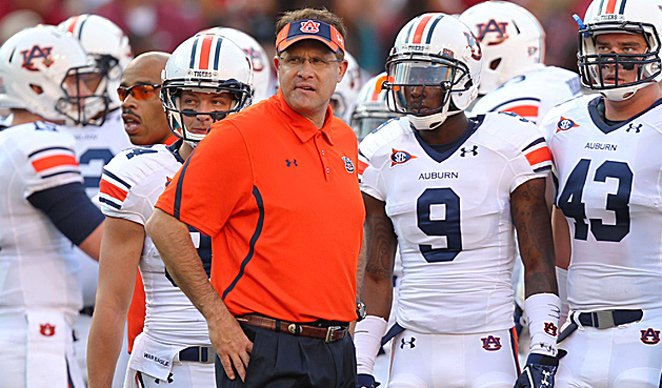
A great article appeared on the ESPN website about the head coach for the Auburn Tigers Football program, Gus Malzahn. (The Book of Malzahn, by Kevin Van Valkenburg) .
The article chronicles the rise of Malzahn, who 7 years ago was coaching a high school team, and now has arguably led the greatest turnaround in college football history. He flipped Auburn’s win loss record under the former coach from 3-9 to 12-1 and brought the team to the National Title Game. Many leadership principles in the story are evident, but one that really showed up was how Gus Malzahn as a leader embodies the principle of Visioning.
To say that the leadership skill of Visioning is the process of sharing with others a picture of the big win is not the whole story. Great Visioning comes from a leader becoming a ‘new observer’, seeing the same old, same old, with new clarity: how people will behave, how they will work with others, how their untapped capacity can be harnessed. And then the final product emerges as a powerful vision. The author’s description of Malzahn’s no-huddle offense illustrates his new observer mindset, and the innovative vision that can develop:
“The secret was to simplify things, to take teenage thinking out of the equation and let athleticism take over. Instead of running the play call into the game with a wide receiver, or signaling plays to the quarterback (and then asking the quarterback to relay them to the team), Malzahn demanded every player watch the signals from the sideline. The fullback, not the quarterback, called out the pass protections.The signals also were simplified, arranged by colors (blue, yellow, black, green, and red) and numbers, then named after Biblical characters. An offensive coordinator would stand next to a flip board, and if he posed like David slinging his slingshot in the story of David and Goliath, the players would know immediately what play to run based on color and number combinations. “It changed the way I look at football,” Malzahn said. “It gave you twice the reps, twice the opportunity to call plays. You had to be in a different kind of shape, mentally and physically to do it, but it was like stealing early. It was such an advantage.”
For Gus Malzahn, it was this clarity around how he would change the game that was his Visioning. Was it risky? Sure. Has it payed off? The record speaks for itself. What is your vision of your organization as a leader? Are you seeing with new eyes the same old, same old? Are you clear what behaviors you would like your team to exhibit? These are skills that you as a leader must develop. That’s why #wecoachleaders.





1 Comment
What a great look into a winning strategy. Malzhan rocks.